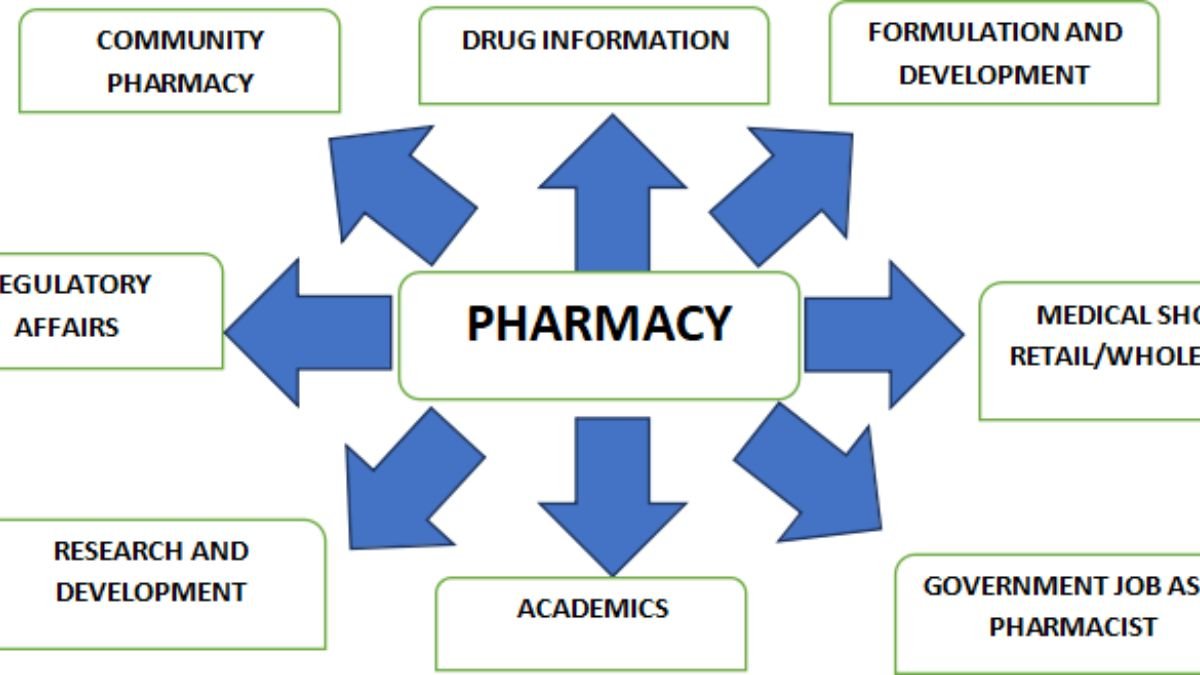Health-system pharmacy is a field that is not limited to the delivery of medications, but also encompasses patient care, collaboration with the medical team, and implementing policies that impact the health system. If you are considering a career in pharmacy, health-system pharmacy could be a great opportunity for you. In this article, we will discuss in detail the career options available in this field, their roles, required skills, and potential future opportunities.
What is health-system pharmacy?
Health-system pharmacy is a branch of pharmacy where pharmacists work in hospitals, health centers, and large health organizational networks. Here, pharmacists not only dispense medications to patients but also ensure the safe and effective use of medications, provide patient counseling, and collaborate with healthcare providers.
The primary objective of this field is to improve patient care and enhance the quality of healthcare. Health-system pharmacy differs from traditional retail pharmacy because it involves understanding patients’ complex medical needs and working with other team members.
Careers as Hospital and Clinical Pharmacists
Hospital or clinical pharmacists are the most common career options in health-system pharmacy. In this role, pharmacists analyze patients’ medical records, assist physicians in prescribing the correct dosages, and monitor potential side effects.
The work of a clinical pharmacist is not limited to prescribing medications; they also guide patients and their families on proper medication use, potential side effects, and lifestyle changes. This career path is suitable for those who enjoy interacting directly with patients and playing an active role in the medical process.
Pharmacy Management and Administrative Roles
Health-system pharmacy involves more than just clinical work; opportunities exist for administrative and management roles as well. Roles such as pharmacy manager, pharmaceutical administrator, and department head allow pharmacists to develop and implement pharmacy policies for hospitals and healthcare organizations.
Professionals working in this field are responsible for drug storage, supply chain management, budget planning, and pharmacy staff training. Administrative roles are suitable for pharmacists with strong organizational skills, strategic thinking, and leadership abilities.
Research and Education in Health-System Pharmacy
Another interesting career path in health-system pharmacy is research and education. In this role, pharmacists research new uses of medications, drug safety, and effectiveness, and train pharmacy students or other healthcare professionals.
Pharmacists who choose careers in research and education contribute to new drug policies, drug delivery systems, and innovations that improve patient treatment. This field offers opportunities for continuous learning and innovation, making it attractive to those passionate about science and education.
Pharmacy Technical and Specialist Roles
Roles requiring technical expertise are also important in health-system pharmacy. For example, roles such as pharmaceutical consultant, toxicology specialist, and pharmacovigilance coordinator offer pharmacists the opportunity to demonstrate their expertise and technical skills.
These roles involve monitoring drug safety and efficacy, providing medical advice in complex cases, and analyzing health-system data. Technical and specialized roles are suitable for pharmacists with an interest in detail, analysis, and a scientific approach.
Required Skills for a Health-System Pharmacist
Educational qualifications alone are not enough to succeed in this field. Pharmacists must also develop communication skills, teamwork, problem-solving abilities, and careful decision-making. The ability to communicate effectively with patients and the medical team, and the ability to understand and apply complex medication information are essential for success in this career.
In addition, technical proficiency and knowledge of the latest pharmacy software are essential, as modern health-system pharmacy makes extensive use of data analytics and digital tools.
Certification and Education in Health-System Pharmacy
Education and certification also play a crucial role in building a successful career. Most health-system pharmacists possess a Doctor of Pharmacy (Pharm.D.) degree. Additionally, additional training and certification in clinical pharmacy, health-care management, or pharmaceutical research also strengthen careers.
International certifications such as the Board Certification in Hospital Pharmacy (BCPS) or the Federation of Pharmaceutical Education (FPE) provide pharmacists with opportunities for specialization and career advancement.
Career Prospects and Future
The field of health-system pharmacy is constantly growing, and opportunities are expanding due to new technologies, digital tools, and patient-centered models. Demand for pharmacists is not only in hospitals, but also in the workplace.
Conclusion
Health-system pharmacy is not limited to the delivery of medications, but also includes patient care, administrative responsibilities, research, education, and specialized roles. A career in this field offers opportunities for professional satisfaction, growth, and a stable future.
For those interested in pharmacy and wanting to make a real contribution to healthcare, health-system pharmacy is an ideal career choice. By acquiring the necessary skills, education, and certifications in this field, you will not only strengthen your career but also make a significant impact on patients and the health system.
